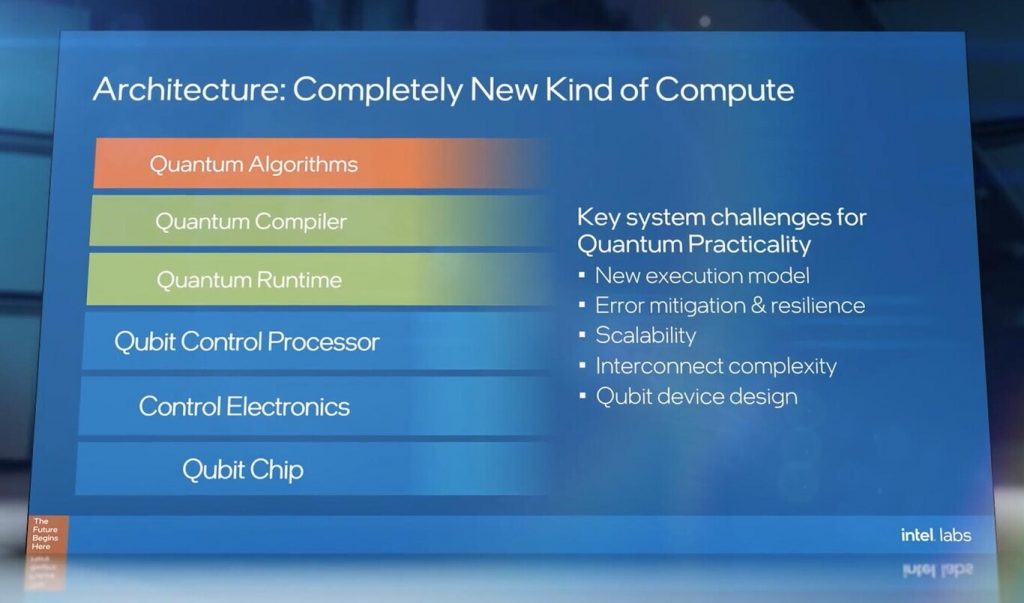The development that quantum computing has undergone over the past two years invites us to contemplate the future of this discipline with very healthy optimism. And it is that the milestones that some research groups and several companies have reached during 2019 and 2020 were difficult to foresee a short time before.
This period of splendor began in style in early January 2019 as IBM took advantage of the CES celebration to officially announce that it had its Q System One ready, the first quantum computer for commercial applications. And just a few months later, we discovered to our amazement that the research team led by John Martinis at Google claimed to have achieved quantum supremacy .
2020 has surprised us with several very important achievements in quantum computing, such as the realization of the first quantum simulation of a chemical reaction or the materialization of quantum supremacy in China.
It did not take long for voices to emerge that questioned whether Google had really reached this milestone , but this achievement was consolidated when the article in which John Martinis and his family explained how they had done it came to light.
And 2020 has arrived, a year in which the pandemic caused by the SARS-CoV-2 virus has not prevented us from being surprised by several very important achievements in quantum computing, such as the realization of the first quantum simulation of a chemical reaction or the materialization of quantum supremacy in China using a very different method from that employed by Google a few months earlier.
China is a quantum computing and communications powerhouse

Just a few days ago, in the middle of last December, a research group from the China University of Science and Technology and the Beijing Tsinghua University led by Jian-Wei Pan published an article in Science in which it explained how it had achieved Solve in just over three minutes using a quantum system a problem in which the most powerful classical supercomputers on the planet would have invested 600 million years.
With this milestone, China, like Google a few months earlier, had achieved quantum supremacy, but the interesting thing is that the strategy used by Asian researchers is radically different from that used by John Martinis’ team. And the Jian-Wei Pan group has developed a quantum system that uses an optical circuit capable of taking advantage of the quantum property that allows photons to travel randomly in different directions to carry out extraordinarily complex calculations.
The strategy used by the Asian researchers is radically different from that used by the Google team
The purpose of this article is not to know in detail how the experiment that Chinese researchers have carried out works, but to show us that quantum supremacy can be achieved using very different approaches and technologies . In fact, it is very likely that during the coming months other research groups and other companies will also carry out an achievement comparable to the one that the Chinese and American researchers we are talking about already have on their curriculum.
Curiously, this is not the only milestone that China has reached in terms of quantum technologies during 2020. In the middle of the year that we have just left behind, a team of Asian researchers published in Nature an article in which they describe the procedure that has allowed them to transmit an encrypted message impossible to break at a distance of 1,120 kilometers using quantum entanglement . You have all the details about this feat in the article that I link right here.
These are the main challenges of this type of computing
The achievements we have just reviewed bring to the table the enormous potential that quantum computing has and invite us to anticipate that new milestones will soon arrive that will further boost this discipline. However, we still have daunting challenges ahead that remind us to be cautious and keep working hard if we want quantum computers to one day help us find the solution to some of the challenges humanity faces. These are the four biggest challenges researchers are working on:

- We need higher quality qubits. The quantum information with which quantum systems operate is destroyed in a short period of time, so having higher quality qubits will allow us to extend the useful life of quantum information and carry out more complex operations with it.
- An error correction system will help us to guarantee that the results that our quantum computer gives us are correct. We don’t have it yet, and as research groups integrate more qubits into quantum computers, it becomes more difficult to preserve the integrity of the quantum state of the system.
- In addition to having higher quality qubits and error correction systems, it is necessary to develop new tools that allow us to control them with precision and carry out more logical operations with them. Its manipulation becomes much more complex as the number of qubits of quantum systems increases.
- The architecture of quantum computers, such as control electronics, the quantum control processor or quantum compilers, also needs to be further developed. One of the most daunting challenges facing researchers is to implement new quantum algorithms that are capable of helping us tackle problems that we cannot solve with the most powerful classical supercomputers we have today. These algorithms are what will allow quantum computers to make a difference.
Also Read | Now you can run commands from the address bar on Google Chrome
